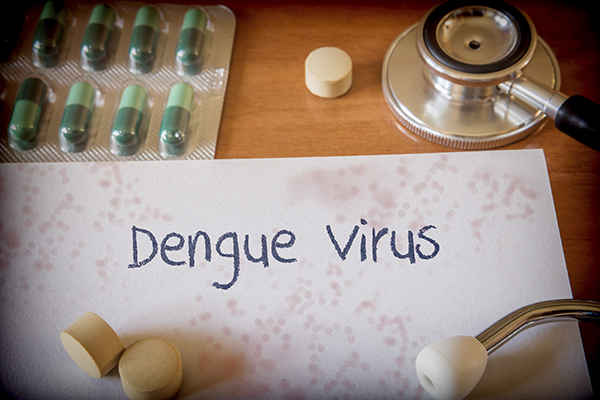
Dr. Eduardo Silva, researcher at the Universidad Internacional Iberoamericana (International Iberoamerican University, UNIB), is participating in a study that analyzes the prevalence, clinical characteristics and molecular epidemiology of dengue in Bangladesh through a systematic review.
Dengue is an acute viral disease that has spread to more than 125 countries, according to WHO. Since 2000, confirmed cases have increased dramatically, reaching 5.2 million in 2019. An estimated 300 million infections occur annually, of which 100 million are clinically recognized. In addition, 4 billion people are at risk of contracting the disease. Although traditionally associated with tropical and subtropical regions, dengue has begun to spread globally.
Dengue is a febrile disease that is transmitted from person to person by the Aedes mosquito. It can be classified as dengue without warning signs, dengue with warning signs, and severe dengue. Most cases of dengue are considered mild, presenting as infections with no or minimal symptoms. The most common signs include high fever, headache, muscle aches, discomfort behind the eyes, joint pain, nausea, vomiting, rash and swollen glands. In more severe situations, symptoms often include severe abdominal pain, persistent vomiting, difficulty breathing, bleeding from the gums or nose, blood in vomit or stool, restlessness, extreme thirst, pale and cold skin, and general weakness.
Bangladesh is considered a dengue endemic area, with regular outbreaks since the first reported case in 2000. Lack of effective surveillance has underestimated the true impact, with significant outbreaks in 2019 and 2023. Following the COVID-19 pandemic, dengue has emerged as a critical public health problem, causing thousands of deaths in 2023. Without effective measures, its spread remains a global concern.
In this context, the study was conducted to examine the lack of integrated research on the prevalence, clinical symptoms, molecular epidemiology, and seasonality of dengue in Bangladesh and its consequences. Its main objective was to analyze the available data on the molecular epidemiology and clinical characteristics of dengue outbreaks in the country.
The research showed that, in the years 2019 and 2023, the disease spread nationwide, affecting approximately half a million people. These years accounted for 78% of all dengue cases in the country, showing an increase not only in the number of cases and deaths, but also in the geographic spread into previously unaffected areas. The increase in cases and deaths is mainly due to the increase in mosquito vectors and the evolution of dengue virus genotypes. Rapid urbanization, increased transportation and international travel have allowed the virus to spread beyond its traditional areas. In addition, climate change has played a crucial role in altering rainfall and temperature patterns, creating conditions conducive to mosquito breeding.
Demographic data indicate that most cases occur in men, although the mortality rate is higher in women, possibly due to factors such as prolonged time at home and late visits to medical services. The 2023 outbreak was particularly severe, with a high concentration of cases in Dhaka division, followed by Chattogram, Barishal, and Khulna.
Dengue control in Bangladesh faces multiple challenges. Lack of adequate infrastructure for monitoring and responding to outbreaks, coupled with limited resources for research and development of effective vaccines, complicates the fight against the disease. Despite these obstacles, some strategies, such as public awareness campaigns and efforts to improve environmental sanitation, have been implemented to reduce the mosquito population.
The current situation underscores the need for closer international collaboration and a comprehensive approach combining surveillance, research and education to mitigate the impact of this disease. Without concerted action, dengue will continue to claim lives and resources, disproportionately affecting the most vulnerable communities.
To learn more about this study, click here.
To read more research, consult the UNIB repository.
The International Iberoamerican University (UNIB) offers master's degree programs in various areas of interest. If you want to know more about them, click on the following link for more information.